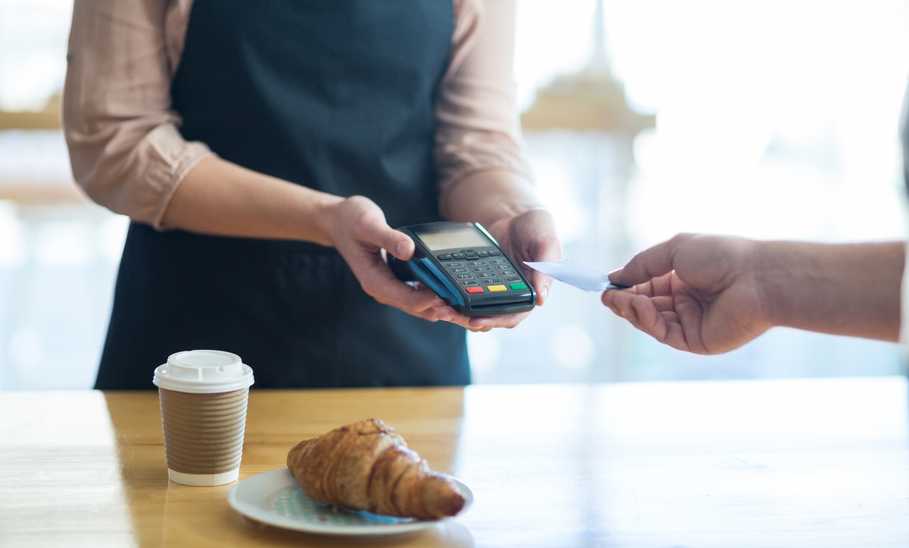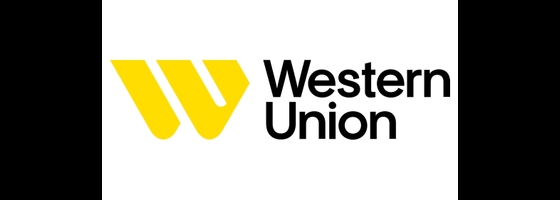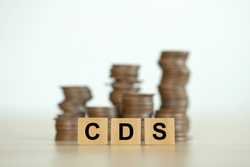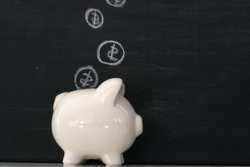- Available in more than 200 countries and nearly all currencies.
- Transfers can be initiated online, via mobile app, or in-store.
- Recipients can receive transfers in cash, if desired.
What Is A Check-Cashing Service?

Our evaluations and opinions are not influenced by our advertising relationships, but we may earn a commission from our partners’ links. This content is created by TIME Stamped, under TIME’s direction and produced in accordance with TIME’s editorial guidelines and overseen by TIME’s editorial staff. Learn more about it.
It’s payday. You receive a check, but you don’t have a bank account and you need the cash fast. What do you do?
If you’re like many people, you might turn to a check-cashing service. While use of these services has declined slightly, according to data from the Federal Deposit Insurance Corporation (FDIC) , 3.2% of all households in the U.S. were still using check-cashing services in 2021.
Check-cashing services are commonly used by those who have limited access to traditional banking. That’s why they are considered—alongside payday loans—part of “alternative” or “fringe” banking in the U.S.
As a “negotiable instrument,” a document that pledges payment, checks allow you to transfer money without using physical cash. While less common these days than online banking and direct deposits, checks are still a widely used way to receive wages. Upon receiving a check with your wages you can take it to a financial institution, or an alternative one such as a check-cashing service, and exchange it for cash.
Check-cashing services often operate in stores like Kroger, Publix, or Walmart. When there, you sign over the check. You may be asked to show ID. The service will charge a fee, meaning that you’ll leave with the amount on the check minus the fee.
Why do people use check cashing? Banks and credit unions are not required to cash checks for non-members, and they may refuse to do so if you don’t have an account with them. That’s one reason why some people turn to check-cashing services.
Check-cashing services argue that they are more convenient than banks, because they provide fast access to cash and have fewer restrictions. In reality, it’s less clear.
Are check-cashing places more convenient? Not necessarily. The service is more expensive than a bank, with fees sometimes around 3%. It also has to be done in person, unlike depositing checks using banking apps. That’s unless you are using mobile check-cashing, in which case it’s about as fast as mobile banking.
Nevertheless, check-cashing services can be faster for those without a bank account. And some economic studies show that consumers who use check-cashing services are willing to pay a premium for quick cash in hand.
Even if you need cash fast, some check-cashing places may limit the kinds of checks they will accept. Some will only take checks from local or national employers, or government entities. This is meant as a way to limit risk. While these services give cash out faster, that can increase the risk that they lose money when cashing a check—either because of fraud or because the person who wrote the check didn’t have enough money in their account to cover it.
Banks limit this risk with a “bank hold,” which only gives out the cash once the money has moved from the account. Instead, check-cashing services limit the types of checks they will cash. Some check-cashing services will accept personal checks, but they may charge higher fees.
Regardless, it’s an expensive way to access money. When relied upon often, the cumulative effect might hinder wealth creation, both costing money and impacting credit scores negatively. Considered holistically, fringe services contribute to a split financial system, where groups of people are classified as risky not because of their own behavior but because of the services they use, critics allege. Check cashing, as one type of these services, can be a costly way to access money. And people who use check cashing may be more likely to use other fringe services like payday loans.
How much will it cost? The fees will vary. Some states set a ceiling for the amount a check cashing service may charge by law. For example, New York limits the fee the service may charge to 2.27% of the amount of the check. In California, the amount is limited to 3% of the check with identification (or 3.5% without identification).
Still, some argue that check-cashing fees are too high and that regulators should change the laws so that consumers pay a low, flat fee with servicers getting an exclusive license within a designated area. For these observers, there is no justification for fixing the price at 3%—which allows the services to set up shop right next to each other without lowering prices—especially since the rate at which some companies say they have to write off bad checks is only 0.3%.
What if you don’t have a bank account, but don’t want to use a check-cashing service? When you eliminate formal banking, the choices are limited. But there are some:
Check issuer’s bank: You can usually take the check to the bank of the person or company who wrote the check and they will cash it.
Cash cards: Some employers offer cash cards. With these, you can put money, including your paycheck, onto the card, which works like an unofficial debit card.
Prepaid debit cards: You can also purchase prepaid cards with a check.
Check cashing belongs to the category of “fringe” banking services in the U.S. These are alternative services outside—or on the fringe—of traditional banking systems. They are often used by those with limited access to mainstream banking, and for a fee they will provide fast access to cash. But they are pricey alternatives to banking. Critics argue that such services contribute to a dual financial system that has disadvantaged some groups of people.
A check can be cashed as soon as it’s received, but actually getting the money can take longer. There are a few ways to get the funds the same day. Mobile banking is typically one of the fastest ways.
If you want to cash a check without a bank account, you can take the check to the bank that issued it (whose name should be printed on the check). You can also find a store that cashes checks (some grocery stores or department stores will do this), or use a cash-checking service.
A bank where you have an account is usually best for cashing a check. That’s because your bank likely won’t charge you a fee, which means you get to keep all of your money.
The information presented here is created by TIME Stamped and overseen by TIME editorial staff. To learn more, see our About Us page.




